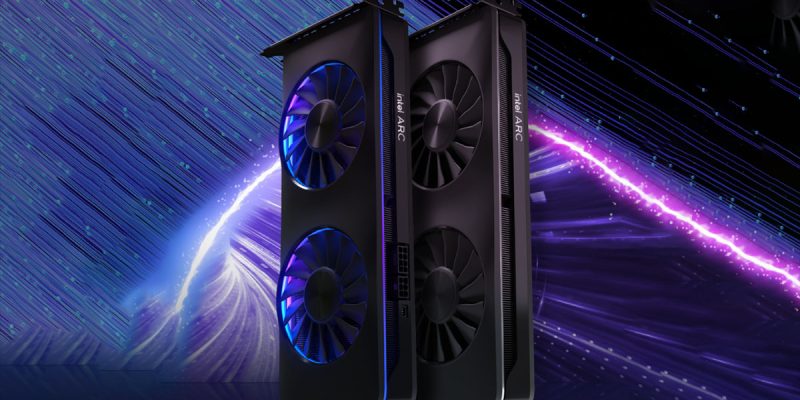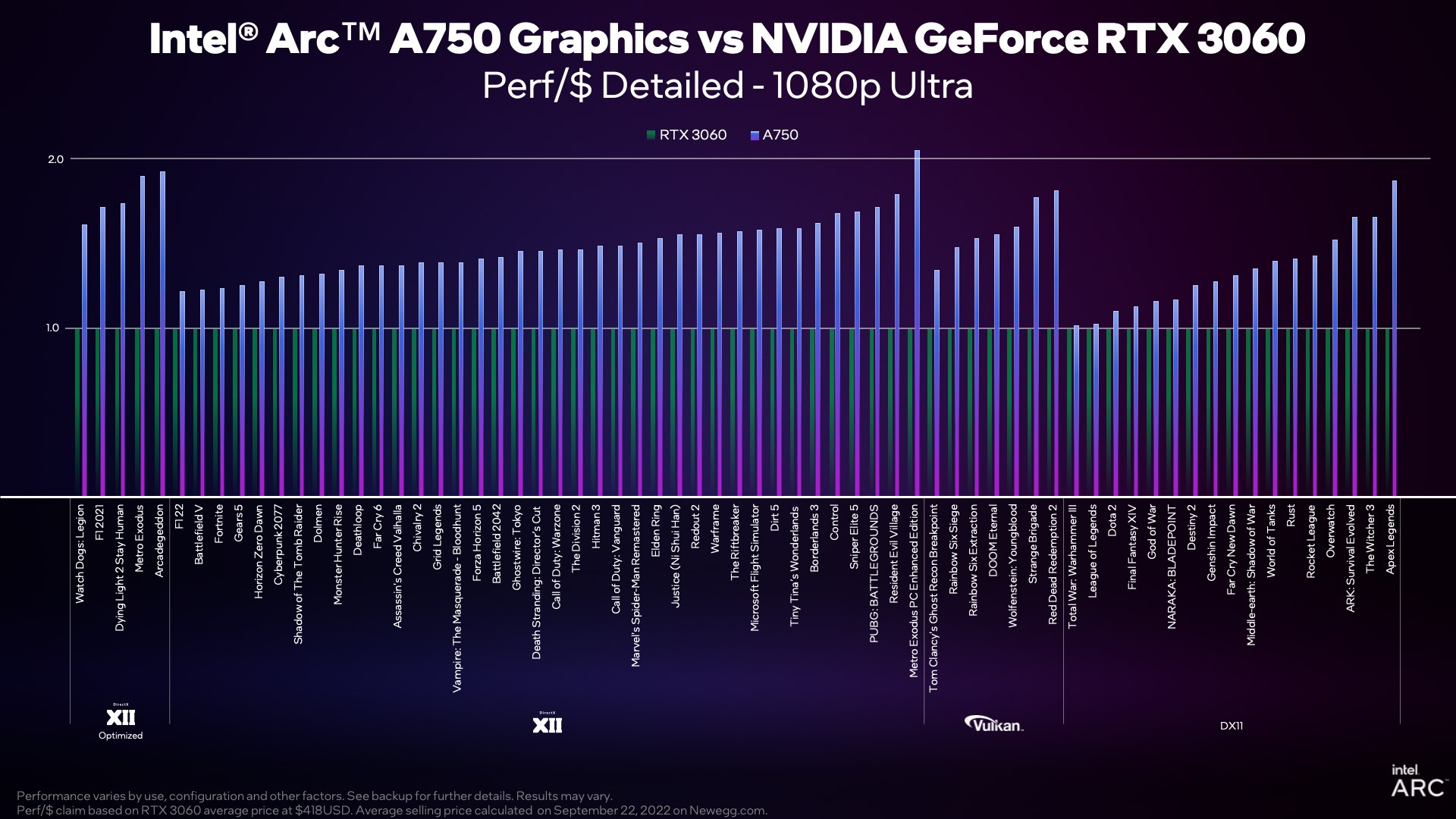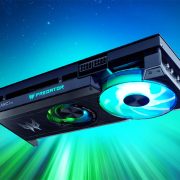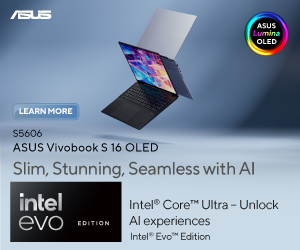
Intel Arc set to bring 53% better value than GeForce RTX 3060
Intel seems finally ready to push forward with Intel Arc, with them claiming that they will be disrupt the market in gamers’ favor. I mean, they better, because they are quite late to the game. In any case, Intel is claiming that the current mainstream GPU prices aren’t great for gamers, and Intel is here to change that with the Intel Arc A750 and Arc A770.
Intel Arc A750: 53% more bang-for-buck than GeForce RTX 3060?
The first thing to note is that Intel isn’t gunning to beat anyone in terms of performance. At least not yet. The Intel Arc A750 and A770 seem to target the GeForce RTX 3060 with its price tag. While the cards are priced like the GeForce RTX 3060, performance is closer to the GeForce RTX 3060 Ti and 3070, so it does seem like Intel has a winner on their hands.


According to Intel’s own benchmarks, the Arc A750 gives you 53% better performance-per-dollar on average versus the GeForce RTX 3060. Meanwhile the beefier Arc A770 is about 42% better in the same metric. One thing to note is that Intel optimized the architecture and drivers for DirectX 12 and Vulkan APIs, which means that if your favorite game is running on DX11 or older, the Arc GPUs might not be for you.
Another advantage that Intel’s Ryan Shrout is quick to note is hardware AV1 encoding support. NVIDIA added it to their cards only with the GeForce RTX 40 series. For streamers and content creators, these are pretty exciting propositions. Unlike AMD, you also have AI accelerators dubbed Intel Xe Matrix eXtensions (XMX) that enable XeSS support. While we have yet to see it in action, it should be close to DLSS, instead of simple upscaling with AMD FidelityFX Super Resolution.
If you are interested, the Intel Arc A750 8GB and Arc A770 16GB Limited Edition will be available starting 12th October at $289 (~RM1,340) and $349 (~RM1,618), respectively. Yes, both these cards will be available on the same day as the NVIDIA GeForce RTX 4090. Meanwhile the Intel Arc A770 8GB models from partners will arrive soon from $329 (~RM1,526).











[…] NVIDIA and Intel have proven the merits of AI-accelerated upscaling, it seems that AMD is finally joining the party. […]